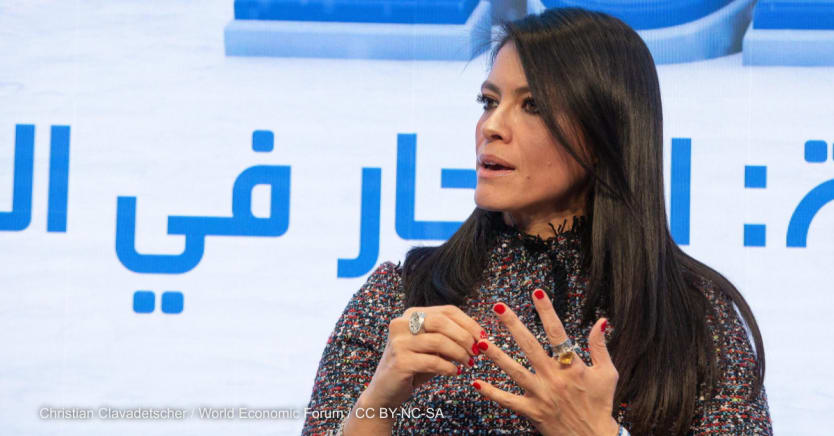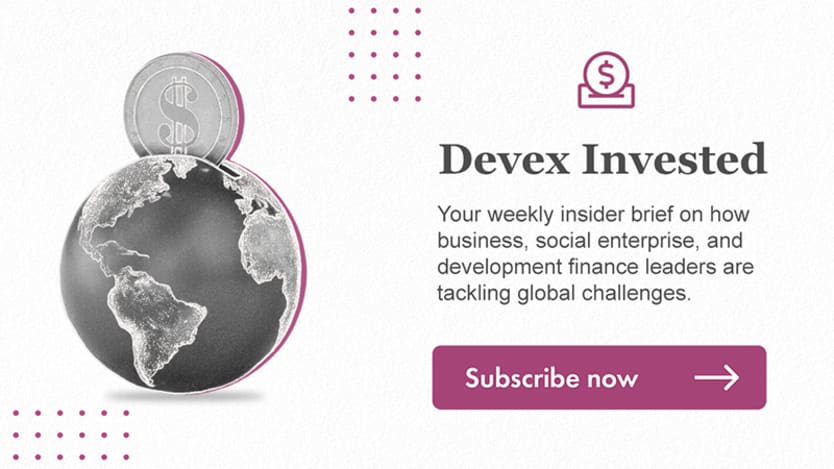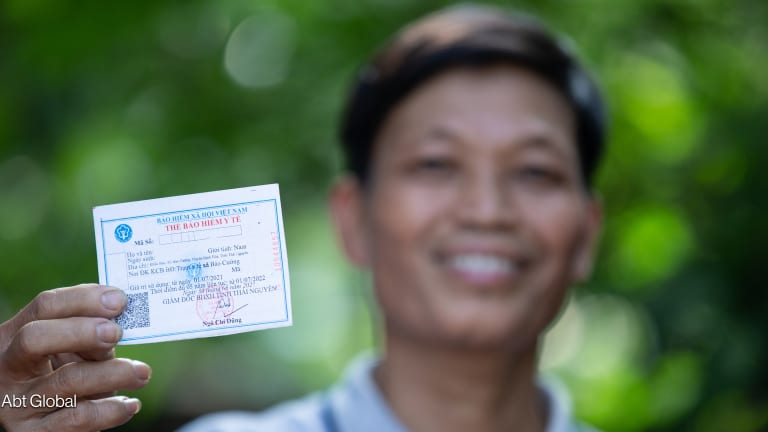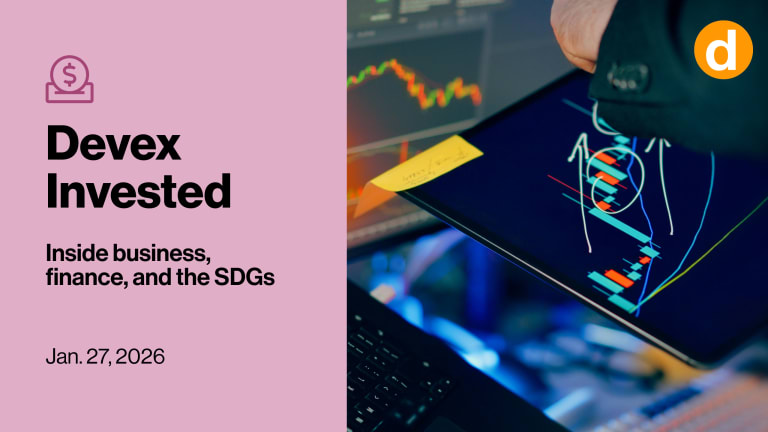
Egypt has created policies, stepped up coordination, mapped its aid funding to the Sustainable Development Goals to improve transparency, and the country now wants to share what’s worked so other nations can learn from its experience, said Rania al-Mashat, Egypt’s minister of international cooperation.
“Any country that is growing or developing needs resources, needs financing. Emerging markets have different sources of financing,” she told Devex in a recent interview. “Of course your budget is one of them, but you will always want to grow beyond your means, if you will. So you will need to find sources of finance.”
“We have a very handsome portfolio on climate, on the ‘green transition’ with our development partners. And that is one of the experiences that can be shared.”
— Rania al-Mashat, Egypt’s minister of international cooperationCountries can tap into financing from international markets, commercial banks, or international financial institutions. What’s critical is that they have clear policies, planning, and accountability to utilize those resources in line with national objectives, al-Mashat said.
Egypt isn’t alone in that belief; dozens of nations are working on how to create and implement effective financing plans for key national and global objectives. But it is looking to share its experience and help others on their own development finance journeys.
The country’s international cooperation has been evolving. It is guided by government policies — including the “Vision 2030” agenda — and has three key features: multistakeholder platforms, mapping funding to key global objectives, and sharing experiences and knowledge.
Egypt brought together hundreds of online participants through multistakeholder platforms in the past year to find ways to collaborate on digitalization, energy, and food security, as well as micro, small, and medium-sized enterprises. It will continue to use those platforms to help organize ideas and integrate various strategies, al-Mashat said.
Egypt has also mapped all of its official development assistance to the SDGs “to improve accountability and identify funding gaps,” she said. Al-Mashat’s ministry published an outline of about 380 projects totaling nearly $26 billion in ODA on its website. Nearly $6 billion — or 23% of Egypt’s total assistance — goes toward SDG 7, aimed at affordable and clean energy.
The mapping has allowed the Ministry of International Cooperation to track progress and funding streams but also to enable its development partners to tell a fuller story about how their funding helps in achieving specific SDGs, al-Mashat said.
The Egyptian government is now seeking to highlight its work to the international community and effectively communicate its journey. It documents its lessons through the “Global Partnerships Narrative,” which aims to offer guidance, advice, and other information. This is an opportunity for Egypt to provide knowledge and technical assistance to other countries in the global south — a form of so-called south-south cooperation, al-Mashat said.
The ministry and the United Nations Development Programme in April launched a coordination platform for sustainable development and south-south cooperation. Egypt also has a center developed by the government and the World Food Programme that it wants to make into a regional hub in Africa for technical and knowledge exchange about food security.
The key elements of Egypt’s success are “based on a government vision” and done in partnership with the international community, al-Mashat said.
Her ministry’s 2021 annual report outlines the country’s efforts to coordinate with development partners in a way that reflects its Vision 2030 plans to achieve the SDGs. It has either developed or is developing new strategies with key partners, including the European Bank for Reconstruction and Development, African Development Bank, World Bank, European Investment Bank, and U.N., al-Mashat said.
Sign up for Devex Invested
The must-read weekly newsletter that keeps you up to date with news about business, finance, and the SDGs.
Working with those international partners is important because along with their funding come standards for implementation, transparency, governance, and the environment, as well as a set time frame — all of which are positive benefits, she said.
However, it is important to have clear visions and policies so that these kinds of programs are based on government priorities.
“We have a backstop. We have our own program, and there’s not a single project that is done based on a development partner’s appetite which is not consistent with the government vision,” al-Mashat said.
Experience shows that if projects aren’t consistent with a country’s needs, it creates problems with governance and raises questions about where money is coming from and who is benefiting.
Egypt holds the presidency of the 2022 U.N. Climate Change Conference — also known as COP 27 — so it will especially seek to highlight its successes in energy transition, she said.
“We have a very handsome portfolio on climate, on the ‘green transition’ with our development partners. And that is one of the experiences that can be shared, particularly as we’re presidents of COP and to show [that] other African nations can actually do what we’ve done,” al-Mashat said.
Conversations are expected to continue around the push for more grant funding from wealthier nations to lower-income countries, she said, as are those on food security, adaptation, and resilience.
It is important to make sure that pledges and commitments are implemented, “and that requires that each and every stakeholder do their role,” al-Mashat said.









